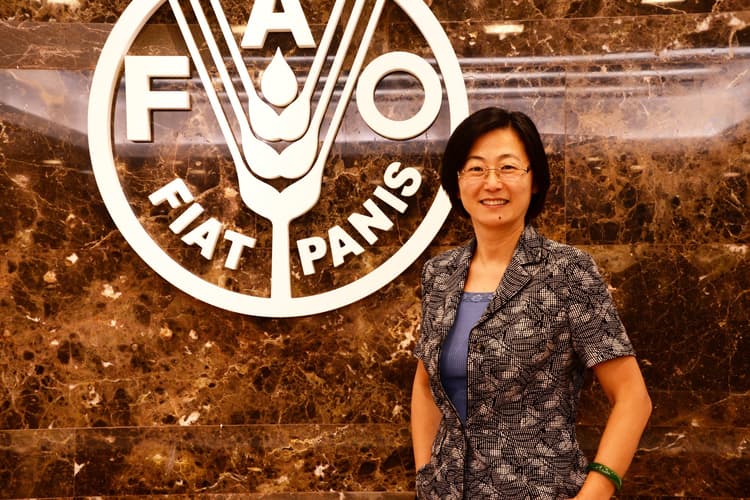- What is your background prior to joining FAO?
Before joining FAO, I had been working in China for nearly 30 years, 20 years in a research institute specialised on rural renewable energy and environmental protection, and then a few years in the Chinese Ministry of Agriculture. This working experience in China gives me a rich first-hand knowledge on how China achieved its dynamic economic growth and overall prosperity including poverty alleviation and ending hunger since its opening-up to the world since early 80’s. These experiences and knowledge still inspire my work in FAO.
- Can you describe a typical workday?
I have a kind of fixed routine every day if I am not on duty travels. I usually wake up at around 6:30 – 7:00am and after a rich and healthy breakfast, with a five minutes drive, I arrive at the office at around 8:30am. Since then, I start my busy days with meetings, handling of emails and review and approval of submissions. I get off work at around 5:30-6:00pm, and then immediately take a joyful jogging together with my husband and two dogs for about one hour. After dinners, I either take meetings with FAO HQ colleagues in Rome or manage emails for any urgent issues. My day ends by 10:30-11:00 pm, as I know good sleep would recharge me well for the next hectic day.
- What is it that you do in your role?
Since Oct 2020, I have been assigned by FAO DG to lead the subregional office of FAO for the Pacific Islands, covering 13 Members namely the Cook Islands, Fiji, Federated States of Micronesia, Kiribati, Nauru, Niue, Palau, Republic of the Marshall Islands, Samoa, Solomon Islands, Tonga, Tuvalu, Vanuatu, and Tokelau as an Associate Member. Pacific Small Island Developing States (SIDS) are remote, with small populations, often dispersed across many atolls. Transportation is a challenge, people depend heavily on import food, but also their terrestrial and marine ecosystems for their food and livelihoods, however, the ecosystems are fragile and vulnerable to natural hazards.
Traditional and locally produced food consumption in these SIDS is declining, and diets are increasingly dependent on imported and processed foods, often of poor nutritional value. Unhealthy diets are a major contributor to non-communicable diseases (NCDs), and NCDs are the single largest cause of premature death in Pacific SIDS.
- How are you working with impact in your view?
FAO has quite intense space to play its roles to promote the agri-food systems transformation, in partnership with all the concerned stakeholders in the Pacific, under the overall guidance of FAO Strategic Framework with the Four Betters: better production, better nutrition, a better environment, and a better life, leaving no one behind. The needs of the countries as well as FAO’s aspiration with four betters do motivate me to do well and work hard for the prosperity and goodness of the Pacific Islanders.
- What is your number one tip for people who want to work with impact?
Think and plan in a systematic and results-driven approach, and then execute activities with a mindfulness of the deliveries with quality and in a timely manner.
